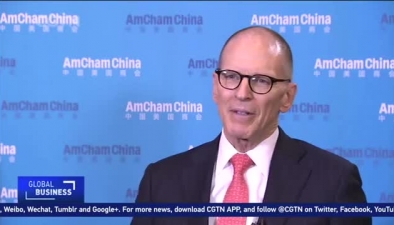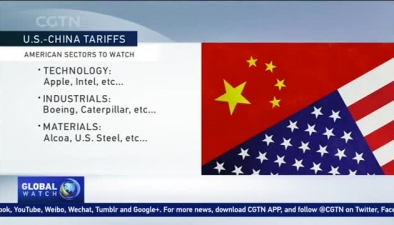MEXICO CITY, April 9 (Xinhua) -- A new U.S. proposal to modify automotive rules of origin within the North American Free Trade Agreement (NAFTA) would be very difficult to do for the region's industry, a Mexican automotive leader said Monday.
At a press conference, Fausto Cuevas, director-general of the Mexican Automotive Industry Association (AMIA), said that negotiators from Canada, the United States and Mexico would analyze the proposal this week in Washington.
However, he said, "It is very difficult to reach the regional content values proposed by the United States. We have shared this position with our counterparts in Canada and the United States, they have the same impression."
Automotive rules of origin, denoting what percentage of a vehicle or auto parts must be manufactured in North America to enjoy NAFTA preferential rules, have been a major sticking point in the talks.
Mexico and Canada are firmly behind keeping the rules of origin at the same levels they have been at since 1994, namely 62.5 percent for vehicles and 60 percent for auto parts.
However, the administration of Donald Trump wants to raise this to 85 percent for vehicles, including 50 percent reserved for the United States.
The new proposal by the United States divided the rules of origin into five distinct categories of vehicles, parts and components, with different requirements for each, ranging from 60 to 85 percent.
Washington also wants 40 percent of all auto parts in a vehicle to have been made in a factory paying salaries of between 16 to 19 U.S. dollars per hour. Many automakers have moved production to Mexico, in part due to cheap labor, with the factories there paying lower salaries.
"As an industry, we are aware that it is very difficult to reach these levels of regional content. The new proposal contains elements that make it even more stricter and unattainable than the original proposal," commented Cuevas.
The three countries have been renegotiating NAFTA since August 2017, at the behest of Trump, who feels the free-trade pact has been bad for the American economy. The U.S. president has also regularly threatened to scrap NAFTA altogether.













